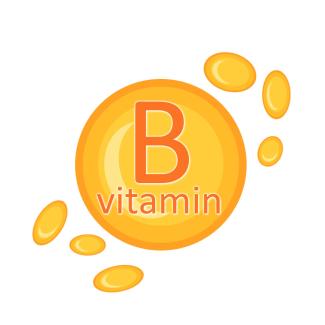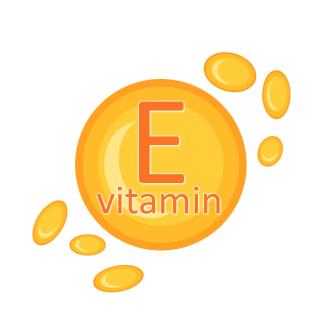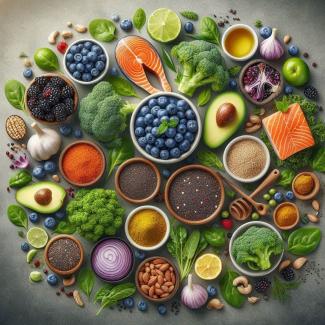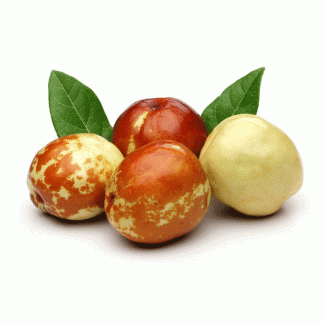
Vitamin B, or the B-complex vitamins, is a group of water-soluble vitamins that play essential roles in various bodily functions. There are several B vitamins, each with its unique functions, but they are often grouped together because they are commonly found in the same foods and work together in many metabolic processes. Here's why we need vitamin B:
- Energy Production: B vitamins (such as B1, B2, B3, B5, B6, B7, B9, and B12) are crucial for converting the food we eat into energy. They are coenzymes that assist in various metabolic reactions, particularly in the production of ATP, which is the body's primary energy currency.
- Cell Growth and Division: Vitamin B9, also known as folic acid or folate, is essential for DNA synthesis and repair. It plays a critical role in cell division and growth, making it especially important during pregnancy and infancy.
- Red Blood Cell Formation: Vitamin B12 (cobalamin) is necessary for the production of red blood cells and for maintaining a healthy nervous system. A deficiency in vitamin B12 can lead to anemia and neurological problems.
- Nervous System Function: B vitamins, including B1 (thiamine), B6 (pyridoxine), B9 (folate), and B12 (cobalamin), are essential for the proper functioning of the nervous system. They help in the synthesis of neurotransmitters and myelin, the protective sheath around nerves.
- Immune System Support: B vitamins, particularly B6, B9, and B12, play a role in immune system function. They are involved in the production of white blood cells and antibodies, which are critical for immune responses.
- Skin, Hair, and Eye Health: Biotin (B7) and niacin (B3) contribute to healthy skin, hair, and eyes. Biotin is often associated with promoting healthy hair and nails, while niacin helps maintain the health of the skin and eyes.
- Digestive Health: Some B vitamins, like niacin and riboflavin (B2), are important for maintaining a healthy digestive system. They aid in the metabolism of fats, proteins, and carbohydrates.
- Hormone Regulation: Vitamin B6 plays a role in hormone regulation, particularly in the metabolism of sex hormones like estrogen and progesterone.
- Antioxidant Activity: Vitamin B2 (riboflavin) is involved in the body's antioxidant defenses, helping to protect cells from oxidative stress.
- Cognitive Function: B vitamins are important for cognitive function and memory. A deficiency in certain B vitamins can lead to cognitive impairments.
It's important to maintain an adequate intake of these vitamins through a balanced diet because they are water-soluble and not stored in the body for long periods. Good dietary sources of B vitamins include whole grains, meat, poultry, fish, dairy products, nuts, seeds, and green leafy vegetables. In some cases, people may need to take B-complex supplements, but it's essential to consult a healthcare professional before doing so, as excessive intake of some B vitamins can have adverse effects.
Vitamin B - the best foods with high vitamin B content
Vitamin B is a group of water-soluble vitamins, and different B vitamins can be found in various foods. Here are some of the best foods with high vitamin B content:
- Meat (particularly organ meats): Organ meats like liver are extremely rich in B vitamins, especially B12. Other meats like beef, pork, and poultry also contain various B vitamins.
- Fish: Fatty fish such as salmon, mackerel, trout, and tuna are good sources of B vitamins, especially B6 and B12. Sardines and herring are also rich in B vitamins.
- Shellfish: Shellfish, including clams, mussels, oysters, and crab, are high in B12 and other B vitamins.
- Eggs: Eggs are a good source of various B vitamins, including B2 (riboflavin) and B12.
- Dairy Products: Dairy foods like milk, cheese, and yogurt contain B2 (riboflavin), B5 (pantothenic acid), and B12.
- Legumes: Beans, lentils, and peas are excellent sources of B vitamins, particularly B1 (thiamine), B2 (riboflavin), and B3 (niacin).
- Whole Grains: Whole grains like brown rice, oats, quinoa, and whole wheat are rich in B vitamins, including B1, B3, B5, and B6.
- Nuts and Seeds: Many nuts and seeds, such as sunflower seeds, almonds, and peanuts, are high in B vitamins, especially B1 and B3.
- Leafy Green Vegetables: Spinach, kale, and other leafy greens are good sources of B vitamins, particularly folate (B9).
- Avocado: Avocado is a source of several B vitamins, particularly B5 and B6.
- Fortified Foods: Some foods, like fortified cereals and nutritional yeast, are enriched with B vitamins, especially B1, B2, B3, B6, and B12.
- Brewer's Yeast: Brewer's yeast is a supplement often used to boost B vitamin intake, especially B1, B2, B3, B5, and B6.
- Soy Products: Tofu, tempeh, and other soy-based products contain various B vitamins, including B1, B2, and B3.
- Bananas: Bananas are a good source of B6.
- Mushrooms: Some varieties of mushrooms, such as shiitake and crimini, contain B vitamins, particularly B2 and B3.
Keep in mind that the B vitamins are water-soluble, which means your body doesn't store them for an extended period, and they need to be replenished regularly through your diet. A well-balanced diet that includes a variety of these foods can help ensure you get an adequate intake of B vitamins. If you have specific dietary restrictions or concerns about your B vitamin intake, consult a healthcare professional or registered dietitian for guidance.






